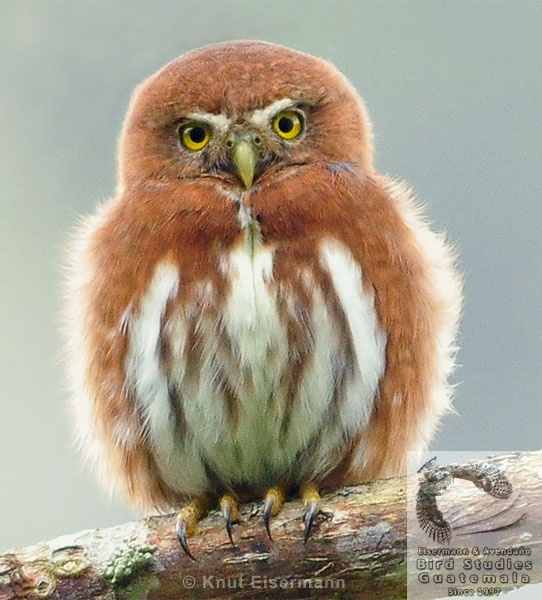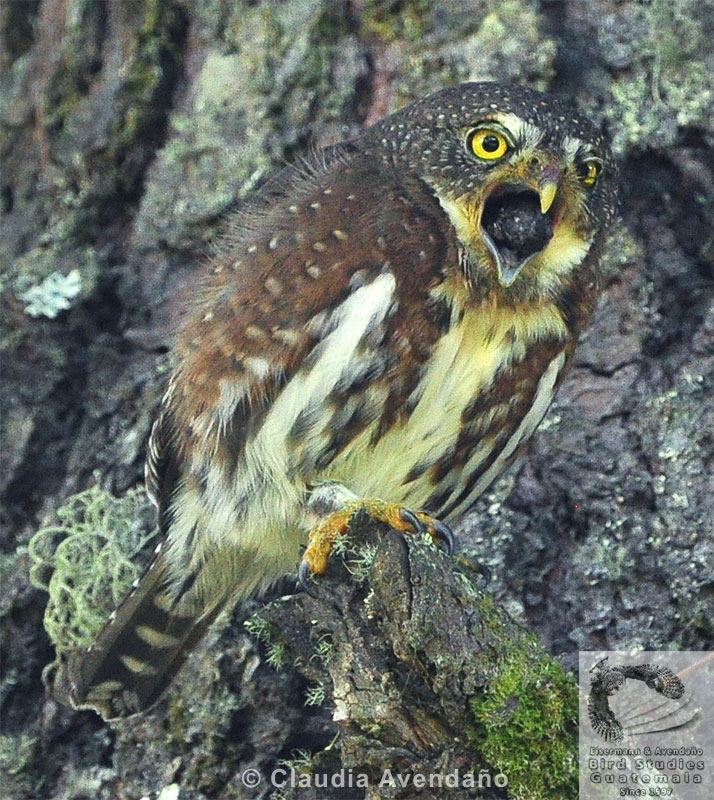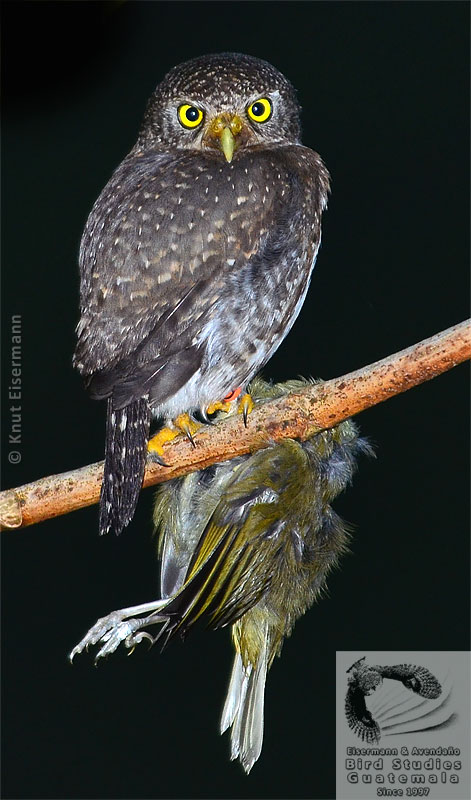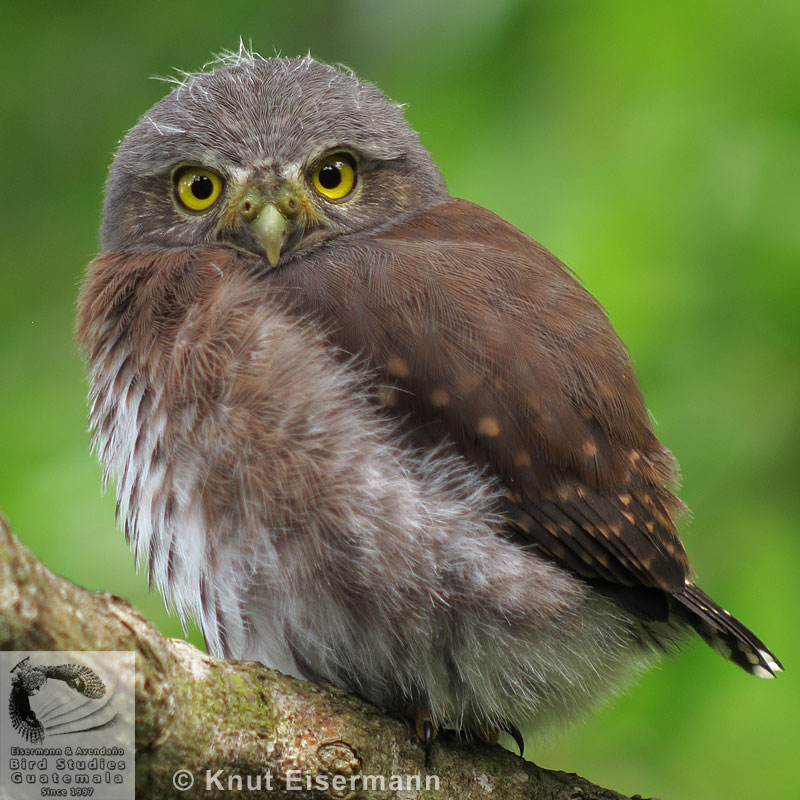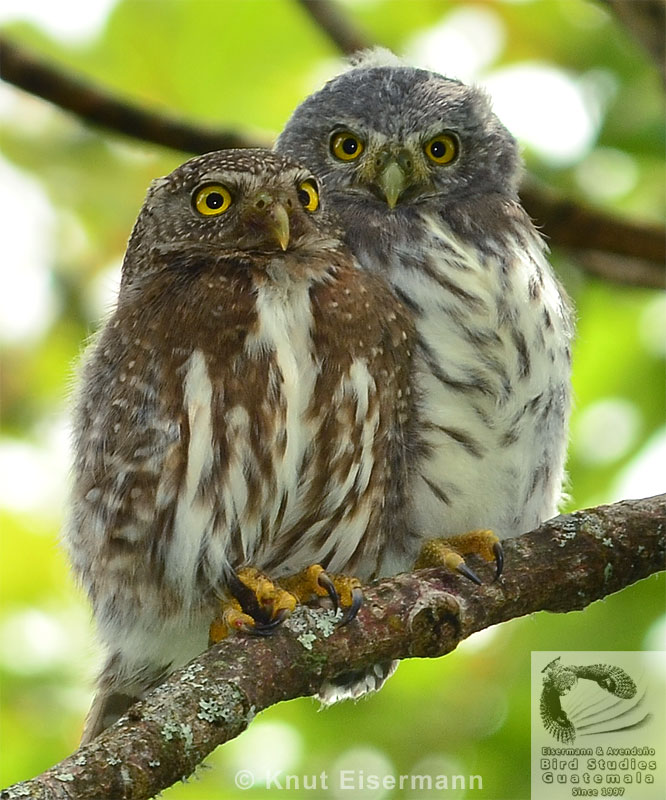Natural history of Guatemalan Pygmy-Owl (Glaucidium cobanenese)
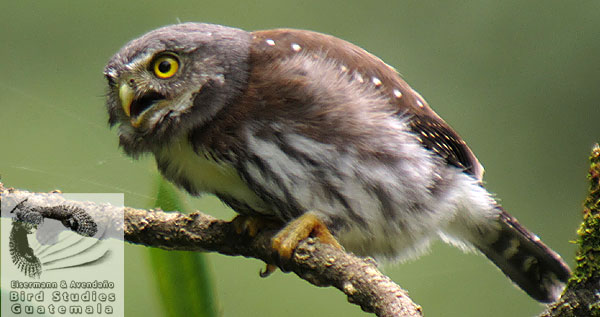
Guatemalan Pygmy-Owl is endemic to the highlands of northern Central America and southern Mexico. We found it to be common throughout the Guatemalan highlands, where we documented the first nesting records for the country. We have been studying the breeding biology of Guatemalan Pygmy-Owl; results are being prepared for publication.
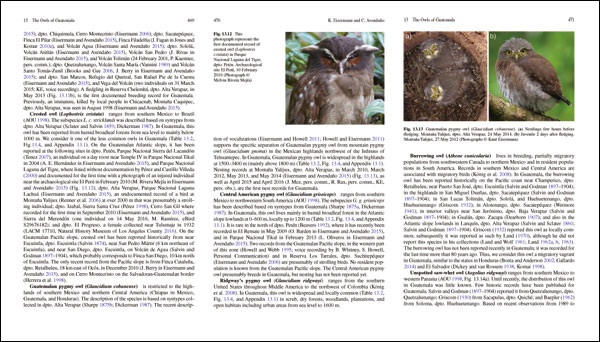
Analyses of the vocalizations of Guatemalan Pygmy-Owl (Glaucidium cobanense), restricted to the highlands of northern Central America, provided new insight in the specific separation from Mountain Pygmy-Owl (Glaucidium gnoma), which occurs in the Mexican highlands north of the isthmus of Tehuantepec. Two papers have been published:
Eisermann, K. & S. N. G. Howell (2011). Vocalizations of the Guatemalan Pygmy-Owl (Glaucidium cobanense). Journal of Raptor Research 45: 304-314.
Abstract: The lowlands of the Isthmus of Tehuantepec separate the range of the Guatemalan Pygmy-Owl
(Glaucidium cobanense), recognized as a species in modern owl taxonomy and resident in the highlands of
southeastern Mexico, Guatemala, and Honduras, from the range of Mountain Pygmy-Owl (Glaucidium
gnoma) in the Mexican highlands northwest of the isthmus. Here we document hitherto undescribed
vocalizations of Guatemalan Pygmy-Owls in the Guatemala-Chiapas highlands. We recorded four different
vocalization types of adults: (1) territorial toot calls, (2) whiwhiwhi calls given by the female during nest-site
establishment, (3) soft toot calls of the male near the nest, and (4) copulation calls. The territorial toot calls
of Guatemalan Pygmy-Owls differed from those of Mountain Pygmy-Owls in Mexico. The mean individual
call rate of Guatemalan Pygmy-Owls was 3.4 ± 0.5 notes/sec (n = 49 call series of six individuals), significantly
higher than in Mountain Pygmy-Owls (1.9 ± 0.3 notes/sec, n = 34 call series of eight individuals).
This new evidence of vocal differences supports modern taxonomic separation of both taxa. PDF
Howell, S. N. G. & K. Eisermann (2011) Guatemalan Pygmy-Owl Glaucidium cobanense is a good species. Neotropical Birding 9: 74-76. PDF
A male Guatemalan Pygmy-Owl of the brown morph calling from a branch of Guatemalan Fir (Abies guatemalensis), mobbed by a White-eared Hummingbird. Video by Knut Eisermann.
Juvenile Guatemalan Pygmy Owls at the nest entrance.
A Guatemalan Pygmy-Owl Glaucidium cobanense doing what it has to do … seen in the highlands of Guatemala. Watch this brown morph Guatemalan Pygmy-Owl making a feather fly in a loop, preening, cleaning claws, showing its false eyes, regurgitating a pellet, ruffling, stretching, yawning and falling asleep.
A male Guatemalan Pygmy-Owl of the brown morph calling, mobbed by a Rufous Sabrewing. Video by Knut Eisermann.
